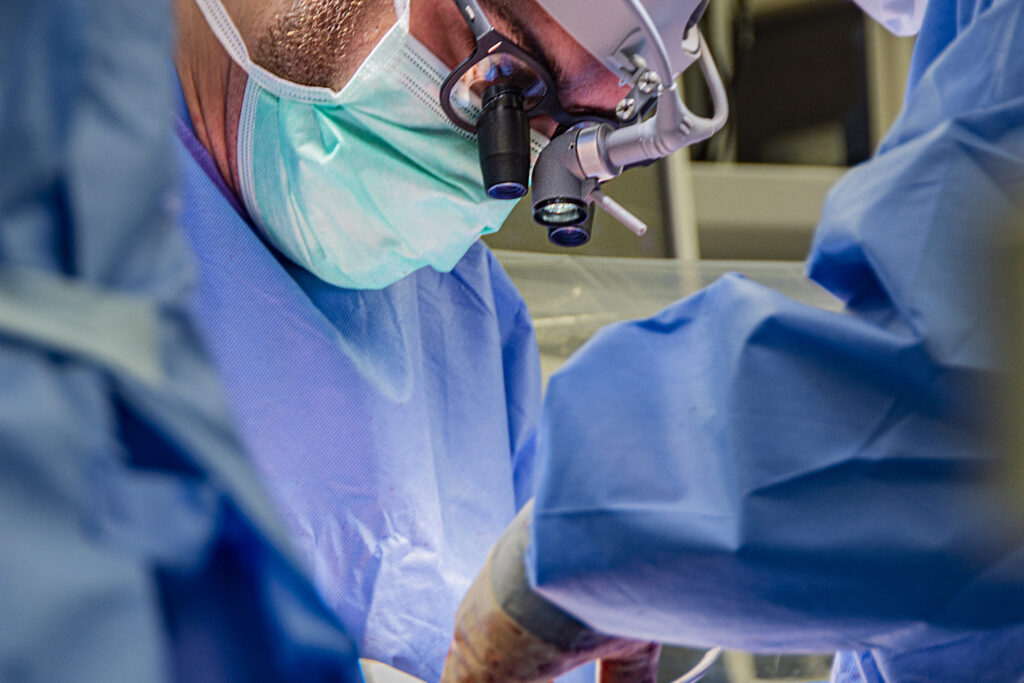Medical City Heart Hospital is the first in the state to complete a complex heart transplant procedure that could expand the number of eligible heart donors by 30 percent. Called donation after cardiac death (DCD) involves surgeons quickly accessing the heart and bringing it back to life after life support has been removed.
Heart transplants are never simple tasks and are usually limited to patients who experience brain death when all the organs are still functioning, but the brain is no longer working. The patient is legally determined to be brain dead and is taken to the operating room, where the heart can be stopped under a controlled situation before it, and other organs are removed for transplant.
In DCD, the patient has often experienced a devastating brain injury but has not been declared officially brain dead. At that time, support is removed from the patient, and they experience cardiac death, meaning the heart has stopped. While post-cardiac death organ removal has long been practiced with other organs, the heart is a different animal. After the life support has been removed from the patient, providers have to wait five minutes after the patient has been declared dead, and then can begin the procedure, but they have to work quickly. Each passing moment the heart is not working reduces the chances it will be used in a transplant.
Once the body cavity is opened up, surgeons have to quickly get to the heart before resuscitating it in the patient’s chest. Then, with a heart-lung machine used in heart surgeries, surgeons bring the heart back to life and pump blood through it to make sure it comes back to life. In this first surgery, it took 45 minutes to confirm that the heart was fully functional. At that point, it was removed and successfully transplanted into the recipient.
While it will typically take surgeons about 20 minutes to get to the heart in a routine organ donation surgery, DCD requires a much speedier operation. For the first surgery, Dr. Brian Lima and his team got the heart onto the heart-lung machine in just seven minutes. Lima is the surgical director of heart transplantation and mechanical circulatory support at Medical City Heart Hospital. “You’re talking about something that is way out of the norm for what we typically do as heart surgeons, so it’s something you have to be comfortable and confident about doing,” he says.”Not a lot of teams would be willing to take that kind of risk on.”
The recipient for this first DCD transplant was 50-year-old Yolanda Triplett, who has been on the transplant list since 2014 after breast cancer treatments damaged her heart. A day after the transplant, she was up and moving, feeling the strongest she has felt in years. “When I found out that I was getting a new heart, I was excited and nervous at the same time because I had waited so long for this,” says Yolanda Triplett via release. “I thought it would never come and when it did, it hit me all of a sudden, and I am so grateful for this wonderful gift.”
The team at Medical City has completed 600 heart transplants since 1991 and is consistently ranked as one of the top-performing centers in the country. The ability to perform DCD heart transplants has garnered interest around the country because so few teams perform the surgery. The team may travel up to 750 miles to complete a DCD surgery and already has inquiries from as far away as Alabama. In the U.K., this procedure has increased the number of heart transplants by 30 percent. Individuals who had support removed and were previously only eligible for other organ donations can donate their hearts.
“We are willing and wanting to be very supportive of this program to be able to reach as many patients as we can,” says Andrea Daniels, chief operating officer at Medical City Heart Hospital. “The idea is to minimize the waiting time and get the patients transplanted as soon as possible.”
While the surgery requires a massive lift in transporting the team and the equipment, sometimes hundreds of miles, it addresses a life and death issue for families. “It’s limited by the scarcity of donor hearts. There are hundreds of people who die every year waiting on the list,” Lima says. The U.S. only does about 3,000 heart transplants per year, so every additional donor is a massive win.
“The hope is that this becomes mainstream,” Daniels says. “We’re really lucky to have the surgeons and the team willing and talented enough to do this.”






